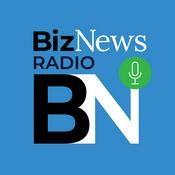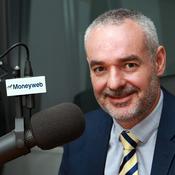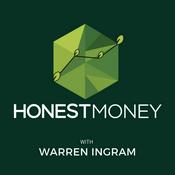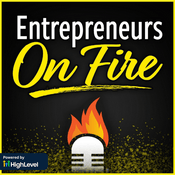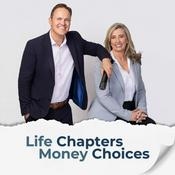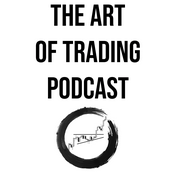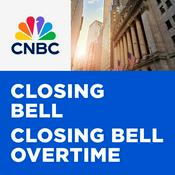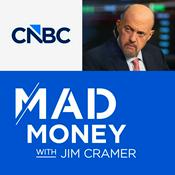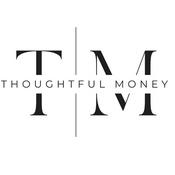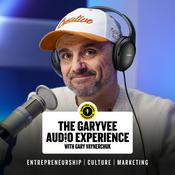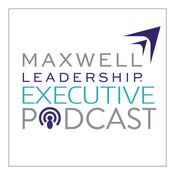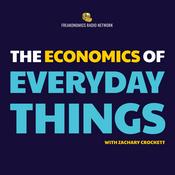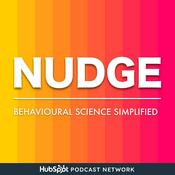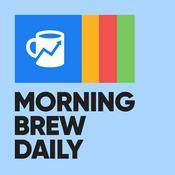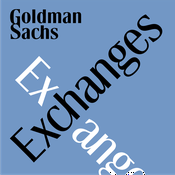473 episodes
- Tammy Thomas, CPA/CFF, CGMA, is a co-author of the most recent FVS Eye on Fraud report, focused on the importance of internal controls preventing employee embezzlement.
In this episode, Thomas breaks down how failures in segregation of duties allowed two major embezzlement schemes to persist for years. She explains how small control gaps and role consolidation can quietly erode an organization's defenses.
Thomas also outlines how deadline pressure and resource constraints can unintentionally weaken internal control environments.
Also, hear the previous Eye on Fraud podcast discussion, about the role of company culture, from July 2025.
What you'll learn from this episode:
A definition of internal controls and why they function best as a dynamic, ongoing process.
How weak internal controls and poor segregation of duties can create openings for employee embezzlement.
Why deadline pressure around the month‑end or year‑end close can weaken internal control effectiveness.
Practical steps organizations can take to strengthen internal controls, improve oversight, and reduce fraud risk.
Why Thomas said it was important to remember that "internal control is not a checklist." - In this episode, Wesley Hartman, co‑author of the Journal of Accountancy's Technology Q&A column, discusses how AI is reshaping work for accounting firms.
He explains the difference between generative and agentic AI and why both matter for firm workflows. Hartman also outlines the most pressing AI risks for CPAs, including hallucinations and emerging deepfake‑driven scams, which he wrote about in the February Tech Q&A. He closes the conversation with practical guidance for adopting AI tools methodically while avoiding common pitfalls.
Also, here are a few Technology Q&A columns related to the discussion:
"How CPAs Can Combat the Rising Threat of Deepfake Fraud," May 1, 2025
"AI-Powered Hacking in Accounting: 'No One Is Safe'," Oct. 1, 2025
"Creating an AI Agent in ChatGPT," Nov. 1, 2025
What you'll learn from this episode:
The ways Hartman uses AI in his own work.
The difference between agentic and generative AI.
Why "confidently wrong" AI responses can present risks for firms.
How inaction or "wait‑and‑see" thinking can create its own form of AI risk. - A new episode of the JofA podcast breaks down the AICPA's updated criteria for stablecoin controls, explaining what issuers and practitioners need to know as regulatory expectations evolve.
This episode explores how revised AICPA stablecoin criteria support more consistent reporting, disclosure, and control assessments across a rapidly developing digital asset landscape.
What you'll learn from this episode:
Why the AICPA developed updated criteria for stablecoin controls and how they complement existing presentation and disclosure criteria.
How the criteria help issuers and auditors evaluate controls over tokens in circulation and the related reserve assets.
How the guidance aligns with regulation, including federal guidelines in the GENIUS Act.
Who can use the criteria and how practitioners can apply them in assurance engagements involving stablecoins.
What work the AICPA Attestation Subgroup is planning for digital asset-related controls and auditing guidance. - In this episode, former AICPA Chair Bill Reeb, CPA/CITP, CGMA, reflects on more than 40 years in the profession and why he believes accountability is the starting point for a successful leadership effort.
Reeb, speaking from the Digital CPA Conference in December, discusses how momentum, clarity of direction, and facing fear help leaders navigate today's rapid pace of change. He also addresses technological shifts including the rise of artificial intelligence and explains why a book he wrote about succession planning was not predominantly about succession.
What you'll learn from this episode:
Reeb's view of CPAs' unlimited career possibilities.
What he and his wife learned on a shopping trip about 40 years ago.
Why momentum, facing fear, and embracing change are essential elements of strong leadership.
How accountability supports effective change management and keeps teams aligned on strategy.
How rapid technological shifts have created higher standards but not necessarily time savings.
Why the answer to "What is Bill Reeb's succession plan?" is complicated. - On this episode of the JofA podcast, an AICPA executive and regular guest discussed trends from discussions with numerous finance professionals, delving into how AI and hybrid work might affect accounting this year and beyond.
"Now we're going to be talking about managing AI agents in finance and accounting," Tom Hood, CPA/CITP, CGMA, said. "That's going to be a whole different world, and it's going to be exponential in what we can do with it."
Hood, the AICPA's executive vice president–Business Engagement and Growth, also explained why CFOs are cautiously optimistic about growth and how the Rise2040 project is helping the profession prepare for long-term change.
What you'll learn from this episode:
How AI is shifting from simple productivity tools to powerful finance agents — and what that means for accounting professionals.
Practical strategies for making hybrid work more effective, including purposeful in-office collaboration.
Why CFOs and finance leaders are cautiously optimistic about growth in 2026 despite economic uncertainty.
How anticipatory thinking and hard-trend analysis can help accountants prepare for long-term change and disruption.
Why trust and integrity remain core accounting values.
More Business podcasts
Trending Business podcasts
About Journal of Accountancy Podcast
The Journal of Accountancy podcast discusses the key issues facing the accounting profession.
Podcast websiteListen to Journal of Accountancy Podcast, How I Built This with Guy Raz and many other podcasts from around the world with the radio.net app
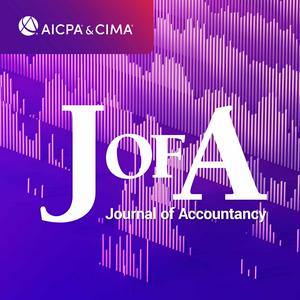
Get the free radio.net app
- Stations and podcasts to bookmark
- Stream via Wi-Fi or Bluetooth
- Supports Carplay & Android Auto
- Many other app features
Get the free radio.net app
- Stations and podcasts to bookmark
- Stream via Wi-Fi or Bluetooth
- Supports Carplay & Android Auto
- Many other app features


Journal of Accountancy Podcast
Scan code,
download the app,
start listening.
download the app,
start listening.




